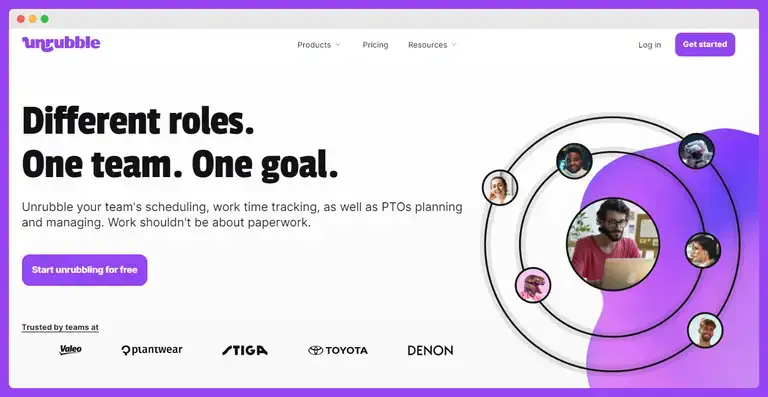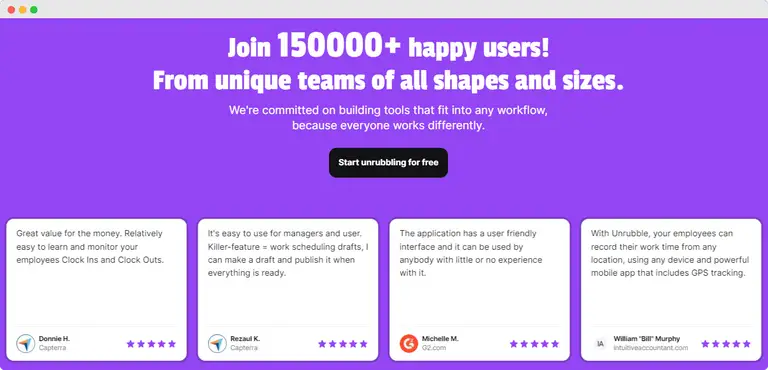Choosing the right productivity method is like picking the perfect tool for a job.
With options like Kanban, 52-17, the Eisenhower Matrix and others, there's a method for every style.
So, which one will be your productivity sidekick?
What is a time management system? Time management tools explained

A time management system is a systematic and structured approach or method employed by individuals or organizations to effectively plan, prioritize, and allocate time to various tasks and activities.
The goal of time management techniques is to enhance productivity, optimize workflow, and achieve goals within stipulated timeframes. These techniques often involve strategies for setting priorities, minimizing procrastination, and organizing tasks in a way that maximizes efficiency.
11 best time management systems to boost productivity at work
Popular time management techniques include the Pomodoro Method, Time Blocking, Eisenhower Matrix, and Kanban.
Let's see what these, and other methods, have in store for you:
Pomodoro technique
How it works - picture breaking your busy day into sections of 25 minutes of focused sprints—these are Pomodoros. After each sprint, reward yourself with a brief break. Every fourth sprint, you take a longer break. It's an efficient rhythm for heightened productivity.
Why it's good
Thanks to focusing intensely for short bursts, it keeps energy levels up and promotes sustained concentration throughout the day.
Who it's for
Ideal for managers and CEOs seeking a structured approach to enhance team productivity.
Examples of industries that can use it
Suited for advertising agencies, IT companies, and marketing teams.
Potential drawbacks
Not suited for tasks requiring prolonged focus as interruptions during Pomodoros might disrupt the flow of work.
52-17
How it works - dive deep into focused work for 52 minutes, followed by a strategic 17-minute break. This method aligns with the brain's natural rhythm of concentration and relaxation.
Why it's good
Optimizes productivity by syncing with your body's natural focus-rest cycle, providing an effective work-rest balance.
Who it's for
Suited for executives and managers aiming for intense focus with regular rejuvenating breaks.
Examples of industries that can use it
Effective for legal firms, consulting agencies, and financial institutions.
Potential drawbacks
Not universally suitable - certain tasks demand continuous focus.
Time boxing

How it works - allocate a fixed time (box) to specific tasks. Concentrate on completing each task within its designated timeframe.
Why it's good
Brings structure to tasks, clarifies priorities, and optimizes time management.
Who it's for
Recommended for managers and CEOs seeking a structured approach to time management.
Examples of industries that can use it
Beneficial for AI custom software development teams, project management, and event planning.
Potential drawbacks
This may lead to incomplete tasks if not adjusted for task complexity.
Time blocking
How it works - segment your day into blocks, each devoted to a specific task or activity. Allocate time for focused work, breaks, and other commitments.
Why it's good
Offers intentional planning, reduces multitasking, and enhances overall time management.
Who it's for
Ideal for CEOs and managers looking for a structured daily routine.
Examples of industries that can use it
Suited for architecture firms, executive leadership teams, and research institutions.
Potential drawbacks:
May be too rigid for handling unexpected schedule changes.
Autofocus
How it works - work on tasks until completion or postpone them for later. Choose tasks intuitively based on your priorities.
Why it's good
Encourages a flexible approach to task management. Allows individuals to follow their natural work preferences.
Who it's for
Ideal for CEOs and managers valuing flexibility in task management.
Examples of industries that can use it
Best for design studios, independent consultants, and content creation teams.
Potential drawbacks:
Could lack a structured approach, which can be challenging for some in task prioritization.
Kanban board

How it works - visualize tasks on a board with columns like "To-Do," "In Progress," and "Done." Move tasks through columns as they progress.
Why it's good
Provides a clear visual representation of tasks, enhances collaboration, and allows easy tracking of work progress.
Who it's for
Effective for CEOs and managers managing workflows with distinct stages.
Examples of industries that can use it:
Applicable for manufacturing, editorial teams, and product development.
Potential drawbacks:
May need additional tools for detailed time tracking.
Iceberg

How it works - prioritize tasks based on urgency and importance. Categorize them as visible, hidden, or subconscious to resemble an iceberg.
Why it's good
Addresses both immediate and long-term goals, providing a holistic view of task priorities.
Who it's for
Ideal for CEOs and executives seeking a comprehensive approach to task prioritization.
Examples of industries that can use it
Effective for strategic planning, research institutions, and investment firms.
Potential drawbacks
Doesn't provide specific time allocations for tasks.
4D method
How it works - divide tasks into categories: Do, Defer, Delegate, and Delete. Assign each task to the appropriate category based on priority.
Why it's good
Offers a systematic approach to work management, helping individuals make decisions efficiently.
Who it's for
CEOs and managers aiming to streamline decision-making and task prioritization.
Examples of industries that can use it
Effective for event management, startups, and creative agencies.
Potential drawbacks
May require discipline in consistently applying the method.
Bullet journal
How it works - a personalized analog system combining tasks, notes, and events in a structured format using bullet points.
Why it's good
Provides flexibility for personalization, integrating tasks and life events in a single journal.
Who it's for
Ideal for CEOs and managers who prefer a handwritten, customizable approach to task management.
Examples of industries that can use it
Suited for educators, researchers, and personal development.
Potential drawbacks
Could potentially lack digital features of tech-oriented tools.
Eisenhower matrix
How it works - categorize tasks into four quadrants based on urgency and importance: Do First, Schedule, Delegate, and Don't Do.
Why it's good
Facilitates effective decision-making by prioritizing tasks based on their significance and time sensitivity.
Who it's for
Good for CEOs and managers aiming to prioritize tasks efficiently.
Examples of industries that can use it
Nice for legal firms, healthcare management, and consulting.
Potential drawbacks
Requires consistent assessment and categorization of tasks.
Agile results

How it works - adopts agile principles for personal productivity, emphasizing outcomes, milestones, and continuous improvement.
Why it's good
Aligns personal goals with agile methodologies, fostering adaptability and goal-oriented focus.
Who it's for
Suited for CEOs and managers familiar with agile frameworks, wanting to apply them to personal efficiency.
Examples of industries that can use it
Effective for IT companies, software development, and project management.
Potential drawbacks
May require familiarity with agile principles for effective implementation.
Boost these methods with time tracking - the best time management software
What if we told you that you can further improve your productivity? Yes, it's possible - with time trackers.
Unrubble, a dynamic time tracking software, effortlessly integrates with popular methods like Pomodoro, 52-17, Kanban, 4D method, time blocking, and others.

Let's explore how it boosts these various time management methods:
Track time with precision
Our time management tool ensures precise time tracking. We let you monitor your work hours, track lateness, and reconcile discrepancies with spot-on accuracy. Say goodbye to manual errors with automatic time tracking.
Improve project management
As a comprehensive project management tool, Unrubble provides powerful schemas and real-time notifications. Collaborate seamlessly so that your projects stay on track and within the time frames.
Boost your productivity
Unrubble empowers you to enhance productivity, accommodating diverse time management skills and methods. From the renowned Pomodoro technique to the focused 52-17 approach, Unrubble aligns with varied workflows.
Master scheduling
Make scheduling a breeze with Unrubble's user-friendly interface. Features like copying, pasting, drag and dropping, and drafting simplify scheduling. At the same time, real-time notifications prevent communication issues.
Manage PTO effortlessly
Make PTOs, work-from-home days, and vacations easy with Unrubble's streamlined request management system. Save time for both employees and managers.
Get real-time timesheets & billing
Unrubble updates timesheets in real time. This contributes to transparency and accuracy in tracking billable hours.
Use the mobile time clock
Enjoy flexibility with Unrubble's mobile time clock, accessible through web apps, browsers, and free mobile apps. Choose your preferred platform while benefiting from cutting-edge face recognition and anti-spoofing detection AI.
Unrubble is committed to simplicity, precision, and seamless integration. Join the community of 149,950+ happy users—start unrubbling for free today and experience the difference in your productivity.

Getting things done is easier now with effective time management systems
We hope you enjoyed learning about the methods you can use to boost your productivity with us.
While all of them are great, remember to pick the ones that align with your preferences, goals, and working style. This way, you'll for sure see a difference in how you work.
And remember - you can boost whichever method you pick with a top-tier time tracker like Unrubble.
Don't wait - become a productivity god today.






